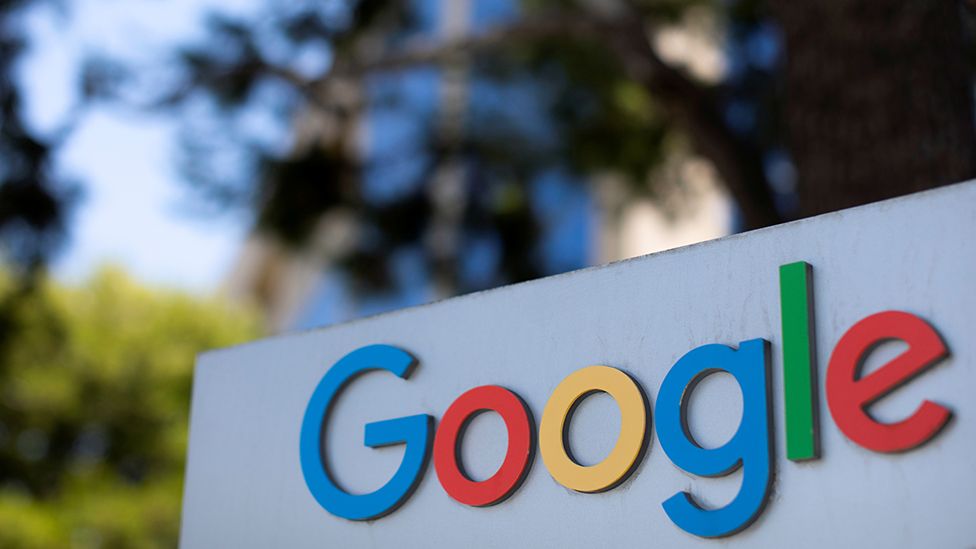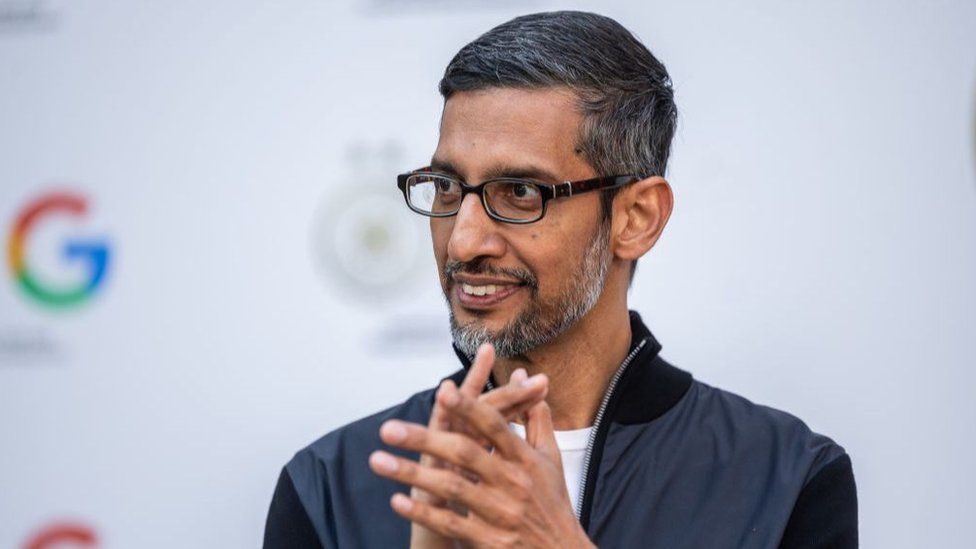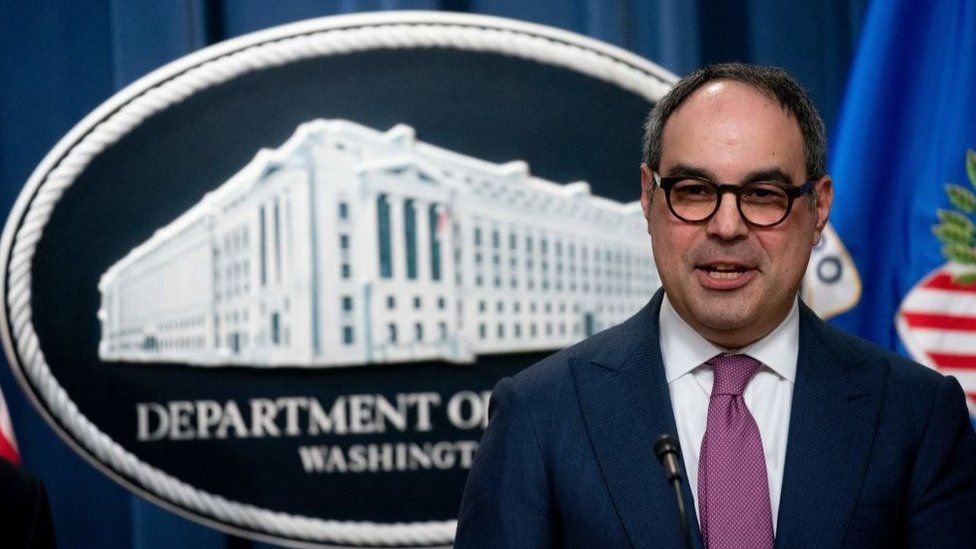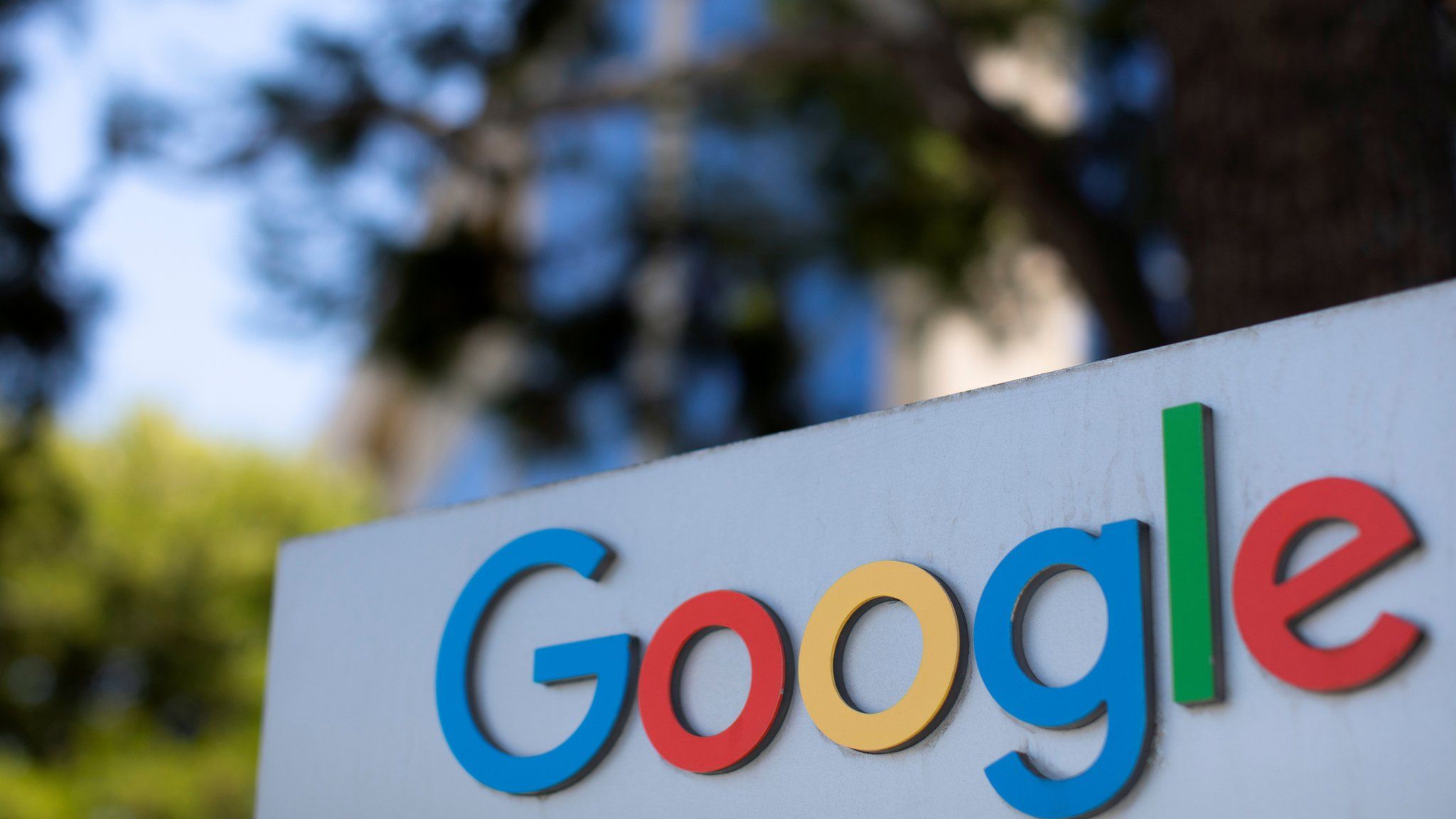Google trial: US takes on tech giant in landmark case

Just a few years ago, a crackdown in the US to curb the might of America’s tech giants seemed at hand.
Bosses from Apple, Amazon, Google and Facebook had been hauled before Congress and President Joe Biden was putting in place a slew of officials known for their tough-on-tech views.
But efforts by Congress to write new rules tackling issues such as privacy and disinformation are all but dead, and in the courts tech firms have won a series of high-profile victories in cases challenging their responsibility for content on their platforms and their right to buy up other firms.
On Tuesday, the next legal battle will begin – a high-stakes trial that pits the government against Google.
The company is accused of unfairly cementing its position as the world’s go-to search engine by paying billions of dollars to phone-makers like Apple and web browsers like Mozilla to be installed as the default option.
Prosecutors contend the deals gave Google – which handles some 90% of global search queries – such a data advantage that it blocked rivals from emerging and violated US competition laws.
The suit, filed in the waning days of the Trump administration in 2020, is seen as a landmark case – the most serious challenge to the way the tech industry operates in decades and a key test of whether the US government can prevail in its fight to rein in the industry.
Sundar Pichai, chief executive of Google’s parent company, Alphabet, is expected to testify over the 10-week trial, as are executives from Apple.
“It’s the anti-trust monopolisation trial of a generation,” says Bill Baer, visiting fellow at the Brookings Institution and a former government attorney working on competition issues, known as anti-trust in the US.
Some analysts say the government has a strong case.
They noted similarities with the 1998 suit against Microsoft, which the courts later found maintained its monopoly over operating systems through illegal, anti-competitive tactics, like pre-installing Internet Explorer.
If the government wins this case, it could mean Google is no longer automatically installed as a search engine – and perhaps other, more significant changes.

Analysts say that could open up the opportunity for rivals, like Microsoft’s Bing or ChatGPT, to gain users – and data – a critical change would leave consumers with more viable choices.
But a government victory is no sure thing.
Google has maintained that it provides a superior product – and nothing but its stronger offering has prevented rivals from working out their own agreements.
Matt Schruers, president of the tech lobby the Computer & Communications Industry Association, says Google can persuasively liken its deals to negotiations between food-makers and supermarkets over where products are placed in stores, agreements that have been examined by US courts and deemed legal.
Mr Schruers says he expects it will also be difficult for the government to prove that consumers have been hurt – the traditional standard by which illegal monopoly power has been judged in the US.
“US anti-trust law does not protect competitors from their competition. It protects the competitive process in order to protect consumers,” he says. “Here it seems like the government is picking winners and losers… and courts have traditionally rejected that view.”
In other recent US court tangles with tech firms, such as the effort to block Microsoft’s acquisition of videogame-maker Activision Blizzard, the government has gone down in defeat.
That has led to blistering criticism from some quarters, including some Republicans who have accused the Biden administration of squandering money on cases it is sure to lose.
“Are you losing on purpose?” Republican Congressman Kevin Kiley asked the head of the Federal Trade Commission, which handled the Microsoft-Activision case at a hearing in July. Fellow Republican Jim Jordan called the agency’s approach “intimidation followed by inaction”.
FTC chair Lina Khan and Jonathan Kanter, who heads anti-trust for the Department of Justice, which is handling the Google case, have defended their records, pointing in part to wins in other industries.
But they have also acknowledged that a tougher competition approach will mean losses in some cases.
Rebecca Haw Allensworth, a law professor at Vanderbilt University, says she thinks regulators can claim progress even in cases they have lost.
“I think it’s too early to say that they’re losing the fight,” she says. “They’re winning some battles and losing some battles but the war is not over.”

Later this month, the FTC is widely expected to file a lawsuit against Amazon. Cases concerning Google’s ad business and Facebook’s purchase of Instagram are also on deck in the coming months. Google recently settled a lawsuit brought by US states over its app store.
Regardless of how this wave of lawsuits is resolved, the tech giants are being slowed by such battles, says Viktor Mayer-Schönberger, professor of internet governance at Oxford University.
But he warns that the US is fighting “the last war” as developments in artificial intelligence put the big platforms on the back foot. Nor does he see signs that such suits will address questions – like control over data – that are likely to play big roles determining the major players of tomorrow.
“It doesn’t mean we shouldn’t do it,” he says, referring to anti-monopoly cases. “[But] we should not hope that this will solve the problems of platform power.”
Anti-monopoly campaigner Stacy Mitchell, co-executive director of the Institute for Local Self-Reliance, says courts have been slow to change, despite mounting public concern about big business and criticism of how they have judged competition disputes. But she sees the tide turning.
“I’ve been studying anti-trust issues for more than 15 years and I can’t overstate how much things have changed,” she says.
“I actually think we’re going to win this,” she says. But she admits: “I can’t tell you how long it’s going to take.”
Related Topics
-
-
20 October 2020

-
